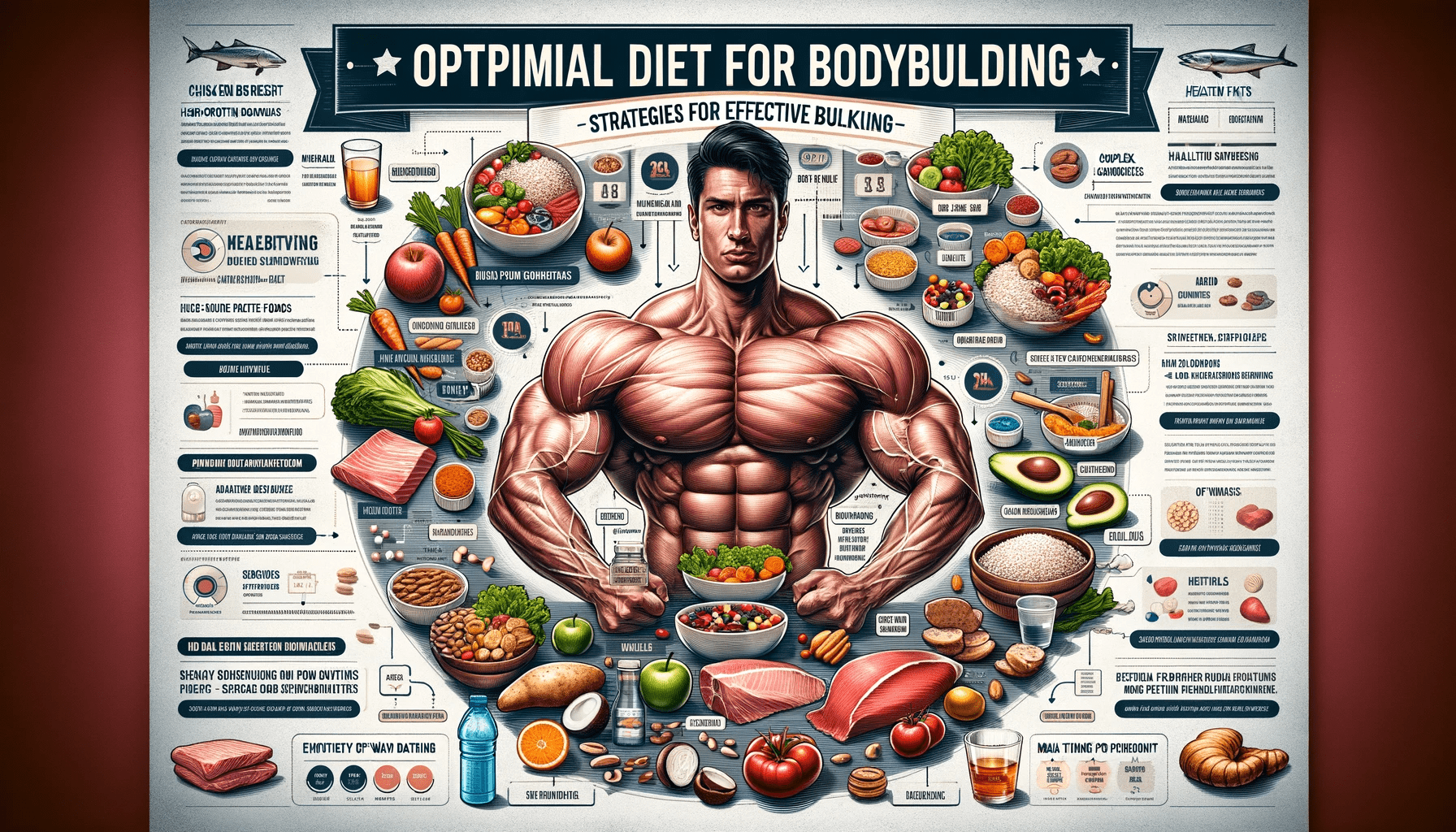The journey of bodybuilding is characterized by two main phases: bulking and cutting. The bulking phase focuses on gaining muscle mass and weight, a process that requires a strategic approach to nutrition alongside rigorous training. An optimal diet for bulking is not just about consuming excess calories; it involves a careful selection of nutrients to support muscle growth, enhance recovery, and minimize fat gain. This article explores the components of an effective bulking diet for bodybuilders, integrating insights from scientific research.
1. Caloric Surplus: The Foundation of Bulking
The primary goal during the bulking phase is to create a caloric surplus, consuming more calories than the body burns to provide the necessary energy for muscle synthesis.
- Scientific Basis: Research indicates that a caloric surplus is essential for muscle hypertrophy. A study published in the "Journal of the International Society of Sports Nutrition" suggests a moderate caloric surplus as optimal for muscle gain while minimizing fat accumulation【1】.
2. Protein: The Building Block of Muscle
Protein is crucial for muscle repair and growth. Adequate protein intake ensures the body has the necessary amino acids for muscle protein synthesis, a key process in muscle building.
- Optimal Intake: The American College of Sports Medicine recommends 1.2 to 2.0 grams of protein per kilogram of body weight per day for athletes engaged in intense training to support muscle growth【2】. Sources of high-quality protein include lean meats, fish, dairy products, and plant-based proteins like legumes and tofu.
3. Carbohydrates: Fueling Muscle Growth and Recovery
Carbohydrates are the body's primary energy source, especially important for fueling intense training sessions and supporting recovery.
- Role in Bulking: A study in "Nutrients" highlights the importance of carbohydrates in promoting anabolic processes and replenishing glycogen stores, which are crucial for sustained performance and recovery【3】. Whole grains, fruits, vegetables, and legumes are excellent sources of complex carbohydrates.
4. Fats: Supporting Overall Health
While protein and carbohydrates often take center stage in a bulking diet, fats play a vital role in hormone regulation, including testosterone, which influences muscle growth.
- Healthy Fats: Incorporating healthy fats from sources like avocados, nuts, seeds, and fatty fish can support hormonal balance and overall health without contributing to excessive fat gain【4】.
5. Timing and Distribution of Meals
The timing and frequency of meals can impact muscle growth. Consuming protein and carbohydrates before and after workouts can optimize muscle protein synthesis and recovery.
- Meal Timing: Research in "The Journal of Nutrition" suggests that distributing protein intake evenly across meals can maximize muscle protein synthesis, an important factor for muscle growth【5】.
6. Hydration and Micronutrients
Adequate hydration and sufficient intake of vitamins and minerals are essential for optimal physiological function and performance during the bulking phase.
- Hydration and Nutrients: Micronutrients, such as vitamins D and C, magnesium, and iron, play roles in muscle function, energy production, and oxygen transport. Ensuring a diet rich in fruits, vegetables, and fortified foods can help meet these nutritional needs【6】.
7. Supplements: Aiding the Bulking Process
While a well-rounded diet is paramount, certain supplements can complement the bulking process by providing additional nutrients or enhancing performance.
- Common Supplements: Creatine, whey protein, and branched-chain amino acids (BCAAs) are among the supplements shown to support muscle growth and recovery【7】.
Conclusion
The optimal diet for bodybuilding during the bulking phase involves more than just eating in excess. It requires a balanced approach that emphasizes adequate protein for muscle synthesis, carbohydrates for energy and recovery, healthy fats for hormonal balance, and sufficient micronutrients for overall health. By strategically increasing caloric intake and focusing on nutrient-dense foods, bodybuilders can effectively gain muscle mass while minimizing fat accumulation. As always, individual needs may vary, and consulting with a nutritionist or dietitian can help tailor the bulking diet to meet personal goals and dietary preferences.
References:
- Journal of the International Society of Sports Nutrition on caloric surplus for muscle gain.
- American College of Sports Medicine on protein intake for athletes.
- Nutrients on the role of carbohydrates in anabolic processes.
- Discussion on healthy fats and hormonal balance in bodybuilding.
- The Journal of Nutrition on protein distribution and muscle protein synthesis.
- Overview of micronutrients' importance for muscle function and energy production.
- Analysis of the effectiveness of supplements like creatine and whey protein in supporting bulking.
Discover Bodybuilding supplements on the Amazon store : link

Leave a comment